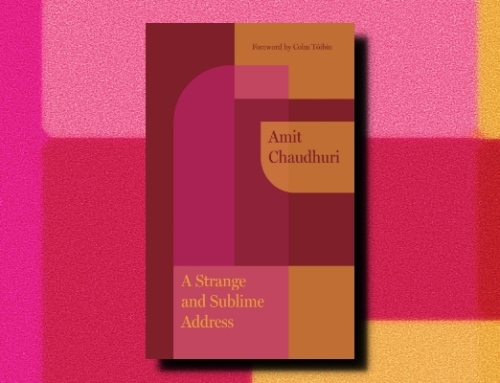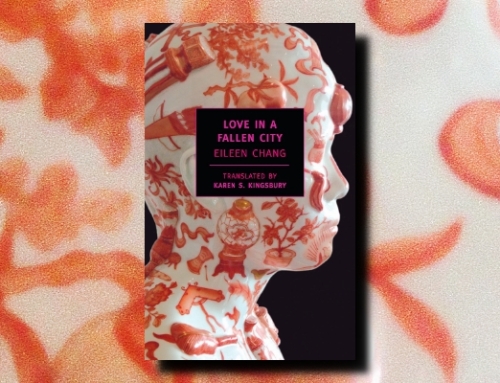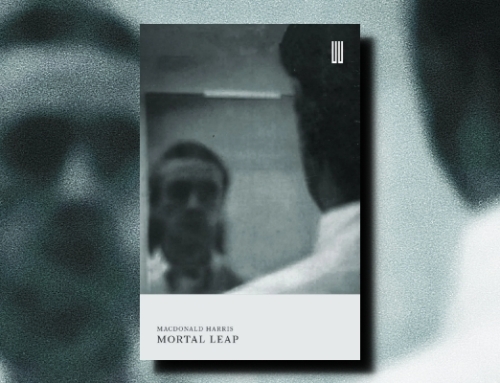The Cannibal Galaxy by Cynthia Ozick (1983) Syracuse University press (1995) 161 pp
A few years ago I was stunned when I read Cynthia Ozick’s The Shawl. It was superb. Since then, I’ve tried to get my hands on other things she’s written, but, as it often happens with authors I’m pretty sure I’ll like, I’ve been saving them up as a treat. No more. I went back to her second novel, The Cannibal Galaxy.
Sadly, The Cannibal Galaxy appears to be out of print in the United States (I checked it out of my local library), as is her next novel, The Messiah of Stockholm (which, to my surprise, I found in a local bookstore). Why we let her novels go out of print is beyond me. We can’t, I don’t think, blame the media entirely (though I haven’t seen much about her new book Foreign Bodies; I’ve read it and will review it soon); after all, Ozick is critically acclaimed: The Cannibal Galaxy was praised in both The New York Times Book Review and the daily New York Times long before Jonathan Franzen’s Freedom was. She’s won several awards. She is considered one of America’s greatest living writers. But her books, even those still in print, are hard to find in bookstores. Well, thank goodness for libraries, because I would hate to have missed out on this book.
I have many unread books on my shelves, and I’m anxious to read many of them. But when I read the opening lines in The Cannibal Galaxy I couldn’t resist checking the book out from the library. They’re wonderful as they introduce our elderly protagonist Joseph Brill, a school teacher, and the American Midwestern setting in which he teaches:
The school was on a large lake in the breast-pocket of the continent, pouched and crouched in inwardness. It was as though it had a horror of coasts and margins; of edges and extremes of any sort. The school was of the middle and in the middle. Its three buildings were middling-high, flat-roofed, moderately modern. Behind them, the lake cast out glimmers of things primeval, cryptic, obscure. These waters had a history of turbulence: they had knocked freighters to pieces in tidal storms. Now and then the lake took human life.
Brill is nearing sixty when the story begins, but quickly Ozick takes us to his youth in Paris. As a Jew, he was raised to shun idolatry of any kind, and this produced in him an innate fear of museums and the relics they hold. Of course, they are also an inviting temptation. One in particular is too alluring. “He did keep away, at least for a while; his conscience was strong, and hummed with his mother’s own inflections.” But, after a few tantalizing years (honestly) in which he took the long route past the museum, Brill finally enters. It turns out to be the home of and memorial to Madame de Sévigné, whose writings to her daughter — now considered great works of art, though to some her daughter was hardly deserving — become important to the book’s themes of maternity and idolatry.
Brill’s Parisian childhood does not take up much of the book, but such is Ozick’s skill that it comes off vivid and nuanced. We learn, for example, of Brill’s best friend Claude who, understanding that his love for Brill does not match Brill’s love for him (or, does it — Brill is not sure), turns on Brill and calls him Dreyfus.
When the Nazis occupy France, Brill is protected by some nuns. He is kept in a basement with plenty of books, so he reads constantly from both Jewish and secular texts. Thus the inception of Brill’s great work — to found a school based on a powerful new pedagogy:
It was a thought infinitely remote, mazy and tantalizing — a school run according to the principle of twin nobilities, twin antiquities. The fusion of scholarly Europe and burnished Jerusalem. The grace of Madame de Sévigné’s flowery courtyard mated to the perfect serenity of a purified Sabbath. Corneille and Racine set beside Jonah and Koheleth. The combinations wheeled in his brain. He saw the civilization that invented the telescope side by side with the civilization that invented conscience — astronomers and God-praisers united in a majestic dream of peace.
We know, from the first pages of the book, that late in live, principal Brill feels stuck in a middling school. He blames the parents and the uncultured students who never, it seems, amount to anything. Certainly none is as gifted as he.
He longed for a noble scholarship — the pleasure-pain of poetry and the comely orderliness of number and the logical passion of Gemara, all laced together in an illustrious tapestry; but he had only these children, the cleverest not clever enough, the mothers shallow brass, the fathers no more than plumbers, the teachers vessels of philistinism, rude, crude, uncultivated, unbookish, raw, oh the ignorance, the vulgarity! Middling, middling! Himself the governor of all this. Royal charlatan.
One day, though, Brill feels he is finally about to be graced by the genius he’s sought. Hester Lilt — the brilliant, confident scholar — has moved to town, and her daughter Beulah will be attending Brill’s school. In every way he can, Brill attempts to offer this child what she needs to become as brilliant as her mother; he favors her above the other pupils and even rearranges the teachers’ assignments when he thinks they are failing Beulah. Despite his efforts, Beulah remains quiet and, apparently, rather dim.
As the book moves on, Brill becomes more and more infuriated when Hester doesn’t seem to take an interest in Beulah’s work. The conflict between Brill and Hester is brilliant. Brill believes that Hester is a gifted mother wasted on a dumb daughter, and, to make matters worse, Hester seems unaware — no, Hester almost seems to wilfully ignore and excuse any potential problems.
“. . . You’re listening to the truth. It all comes out of Beulah.”
She cried, “Leave out Beulah!”
“All your metaphysics. All your philosophy. All your convictions. All out of Beulah. You justify her,” he said. “You invent her around her. You make things fit what she is. You surround her. I’m onto you! If Beulah doesn’t open her mouth, then you analyze silence, silence becomes the door to your beautiful solution, that’s how it works! If Beulah can’t multiply, then you dream up the metaphor of a world without numbers. My God — metaphor! Image! Theory! You haven’t got any metaphors or images or theories. All you’ve got is Beulah. Any idea of yours — look into it, look right at it, and what you’ll see is the obverse of Beulah. Wherever there’s a hole in her — a deficiency, a depression, a dent, an absence — you produce a bump. You make up something to suit the hole, to account for it. You compensate for everything. You re-tailor the universe. You haven’t got any ideas. You’ve only got Beulah.”
How hollow his voice was in the instrument! But he kept it up.
His voice sounds hollow, of course, because some time before Hester disconnected her line, leaving Brill to shout into a void.
If it seems I’ve summarized a great deal of the plot, I assure you that I have not — there is plenty of ground still to cover; indeed, much of what remains unsaid is central to the themes in the book and to how the plot presents those themes. Though this is a relatively short book, it is incredibly dense with both plot and idea. The writing is top-notch. Though Ozick has long strings of sentences and lists tied together with semicolons, it was certainly never cumbersome. A bit more difficult to go through are the dense ideas, but there lies a great deal of pleasure.
Here’s to hoping that some day soon this book is back in print. In the meantime, none of us should wait to read it and more of Ozick’s work.









Good to read this Trevor, and interesting to see that a ‘major’ writer like Ozick is not much better treated in the US than she is in the UK, print-wise. Frankly I doubt if these early novels were *ever* published here.
I took delivery of her latest yesterday, so hope to read it soon. It’s to be published in the UK in May 2011 by Atlantic Books.
It would be interesting to see the publisher history of her novels in the UK.
Trolling aroudn on Amazon.co.uk, I see that the version pictured above (the Library of Modern Jewish Literature from Syracuse University, published in 1995) is avaiable for sale there, though it says they have only one copy in stock. Here I can get that edition only through third parties. It looks like The Cannibal Galaxy was originally published in hardback in the UK in 1984 by Martin Secker and Warburg Ltd. Which led me to wonder when Secker & Warburg merged with Harvill. In 2004, it turns out, when both were already under Random House’s wing.
How is Harvill Secker now?
And, by the way, I had to moderate your comment and it didn’t come up with your avatar. Perhaps you typed in something incorrectly when you published it?
Oh, and one other thing, John. The Cannibal Galaxy was so good I ended up being disappointed by Foreign Bodies, though I think Foreign Bodies is also quite good. Might have been worth spacing them out a bit in my reading.
I can’t help but speculate (and it is only speculation) that part of the issue may be that Ozick is one of those “difficult” authors who does not get along with her publishers. Trolling through Chapters.ca — where she has six screens of books, but the last five are not available — shows that she has bounced from publisher to publisher. While she is known and respected in literary circles, she is certainly not mega-selling — so previous publishers would tend not to produce new editions for a departed author unless they knew sales were guaranteed. And with most if not all of her work still under copyright, the result is a publishing version of gridlock. Certainly, the UK version that collects her stories has no NA equivalent — you would have to locate a number of volumes here to cover what is available in one in the UK.
I’ll get to Foreign Bodies but it might be a while since I still have The Puttermeister Papers on hold.
I hadn’t thought of that problem, Kevin, but I suspect you’re onto something. Cannibal Galaxy and The Messiah of Stockholm were first published by Knopf. Though the last printing of The Messiah of Stockholm was by Vintage, the trade paperback home for Knopf hardbackc, The Cannibal Galaxy went to Syracuse. The Shawl, incidentally, is still in print from Vintage. But her recent work Heir to the Glimmering World, Dictation, and now Foreign Bodies has been printed in hardback by Houghton Mifflin Harcourt and then in paperback by Mariner (HMH imprint). (Interestingly, Roth’s recent books have been published in hardback by HMH and then in paperback by Vintage. I can’t follow the threads.)
Perhaps Random House/Knopf has some disagreements with Ozick and are just uninterested in her work published with them in the 1980s and 1990s. I’d love to know.
As to your last para, perhaps she has disagreements with them. Sometimes we readers are the last to be considered in these disputes, since both sides claim they are representing our interests.
Further to my last comment, as you would know in your current line of work.